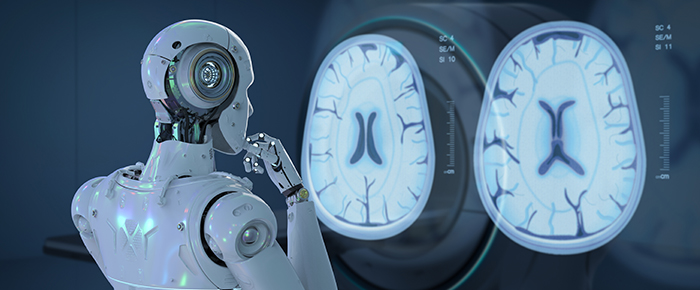
AI Unlocks New Frontiers in Medical DiagnosisAI Unlocks New Frontiers in Medical Diagnosis Artificial Intelligence (AI) has emerged as a transformative force in healthcare, revolutionizing medical diagnosis and expanding its boundaries. Early Detection and Prevention: AI algorithms can analyze vast amounts of medical data, including patient history, vital signs, and imaging results. By identifying subtle patterns and correlations, AI can detect diseases at their earliest stages, often before symptoms appear. This enables early interventions and preventive measures, potentially improving patient outcomes and reducing healthcare costs. Precision Medicine: AI can personalize medical diagnosis by tailoring treatment plans to individual patients based on their unique characteristics. By considering genomic, lifestyle, and environmental factors, AI can identify the most effective therapies for each person. This precision approach optimizes treatment outcomes and reduces the risk of adverse effects. Advanced Imaging Analysis: AI algorithms can enhance medical imaging techniques, such as MRI and CT scans. They can automate image analysis, reducing the time and subjectivity involved while improving accuracy. This enables clinicians to detect subtle abnormalities, diagnose complex conditions, and monitor disease progression more precisely. Pathology Optimization: AI can assist pathologists in analyzing tissue samples and making accurate diagnoses. By classifying cells and identifying patterns, AI algorithms can reduce human error, increase efficiency, and enhance diagnostic consistency. This can lead to quicker and more reliable diagnoses, improving patient care. Remote Monitoring and Telemedicine: AI-powered devices can monitor patients’ health remotely, enabling early detection of health issues and facilitating virtual consultations. By analyzing data collected from wearable devices or home health monitoring systems, AI can detect changes in vital signs, predict disease exacerbations, and provide guidance to patients. Challenges and Considerations: While AI holds immense promise, it also poses challenges and ethical considerations. Ensuring data privacy, addressing bias in algorithms, and maintaining trust between patients and healthcare providers are critical aspects that must be addressed responsibly. Conclusion: AI is unlocking new frontiers in medical diagnosis, enabling earlier detection, personalized treatment, improved imaging analysis, and enhanced remote patient care. By harnessing the power of technology, AI is transforming medicine and empowering clinicians to provide more accurate, timely, and individualized care. However, it is essential to approach AI integration with caution and prioritize ethical considerations to maximize its benefits and mitigate potential risks.
Posted inNews